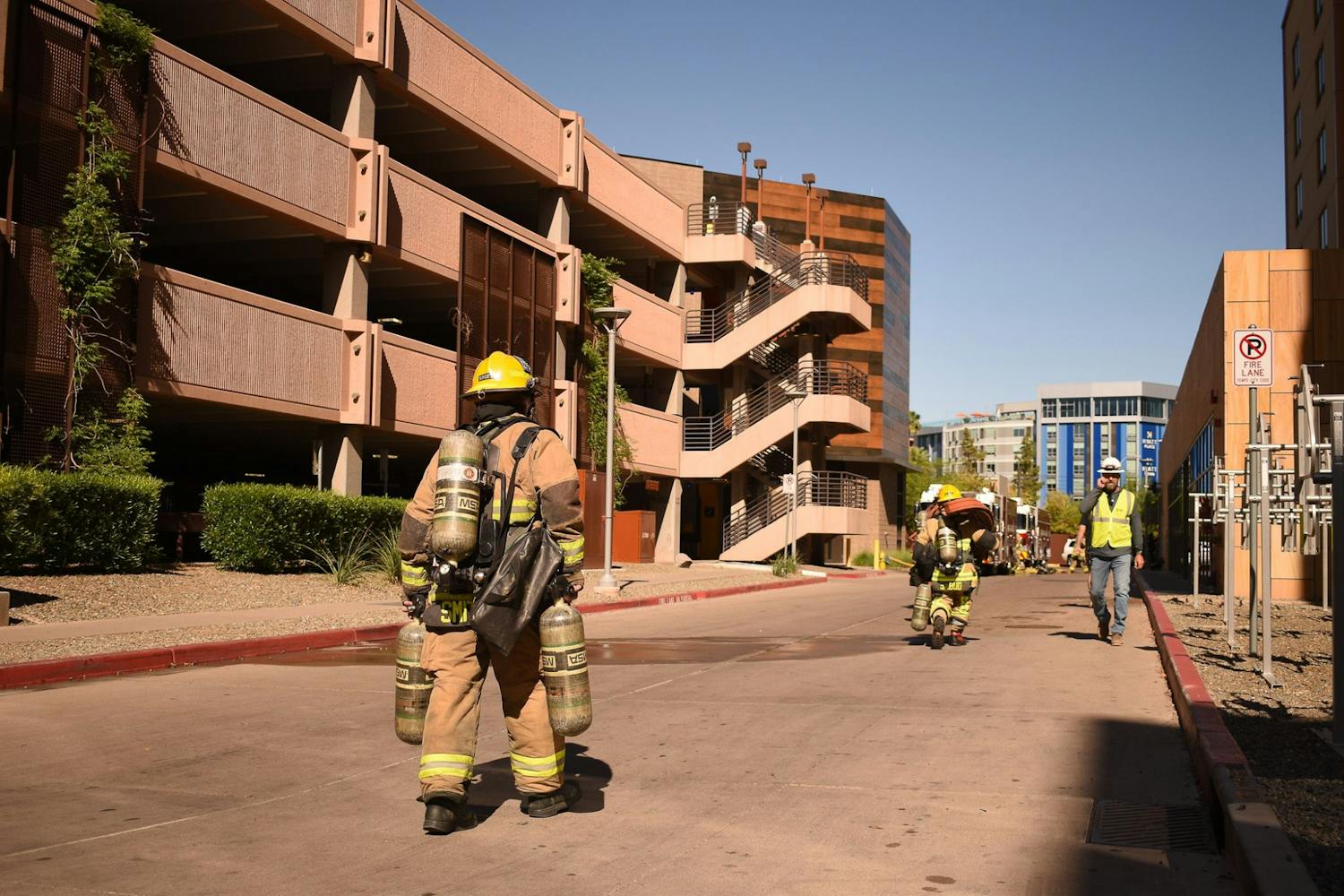ASU campuses could play an important role in plans to bring electric vehicles to Arizona this year.
ECOtality, a clean energy technology company from San Francisco, is designing a network of electric vehicle charging stations that will be launched in December. The stations’ opening will coincide with the launch of the Nissan Leaf, an all electric, zero-emission passenger vehicle.
Arizona was one of five states selected by the Department of Energy to participate in the largest effort so far to simultaneously spur the mass production of electric vehicles and a network of charging stations.
The company was awarded $99.8 million in stimulus funds from the U.S. Department of Energy to create the infrastructure across five pilot states.
Spread around Arizona in key public venues, ECOtality will put 2,050 chargers that can fully charge a vehicle in four to six hours, and 50 chargers that can charge a vehicle in minutes.
ASU and downtown Tempe are going to be a “focal point” of the project, said Marc Sobelman, Arizona Area Manager for ECOtality.
Actual locations aren’t public yet, though Sobelman has been in talks with ASU Parking and Transit Services about spots around campus like parking garages, Sun Devil Stadium and the ASU Foundation.
“ASU and downtown Tempe is going to be a great little area for electric vehicles,” Sobelman added.
Nissan will make 1,000 of its battery-powered vehicles available in Arizona this December. Priced around $32,000, the cars will travel 100 miles on a fully charged battery. The federal government is expected to offer a $7,500 rebate on the cars.
This is Nissan’s first offering of a battery-only vehicle, and they have already started taking orders.
Jim Stack, president of the Phoenix chapter of the Electric Auto Association, said in an e-mail that he and several of his members have already pre-ordered the Nissan Leaf and hope to be driving it by Dec. 12.
Although this is the largest effort of its kind, it isn’t the first.
General Motors debuted an all-electric vehicle in 1996 called the EV1. Seven years later, GM scrapped the EV1, replacing it with the Chevy Volt, a hybrid gas- and battery-powered vehicle.
Why GM’s EV1 failed is debatable, though Bill Sheaffer, executive director of Valley of the Sun Clean Cities Coalition, said certain aspects will be avoided this time.
“Installing the charging stations had been the real Achilles’ heel … with the EV1,” he said. “We had about six charging stations in the Valley … This time around we’ll have more charging stations than we have vehicles.”
Tempe had only two electric charging stations at the time GM’s EV1 was available: Monti’s La Casa Vieja on Mill Avenue, and APS’s Ocotillo Power Plant on University Drive.
Anne Reichman of ASU’s Global Institute of Sustainability and program manager for the Valley’s Sustainable Cities Network, said the opportunity for succeeding with battery-only vehicles is “more ripe” this time around.
Reichman sees high gas prices, the funding ECOtality received from the Department of Energy, and the recent gearing-up of auto manufactures to offer different models of electric vehicles as a timely convergence that bodes well for efforts this time.
To ensure greater consumer acceptance, ECOtality and its competitors across the country have developed a standard plug that will fit into any electric vehicle.
“That’s why this is going to succeed where EV1 didn’t, because even if you knew where a charging station was, you might not have the right inlet,” Sobelman said.
Reach reporter at cbleone@asu.edu



